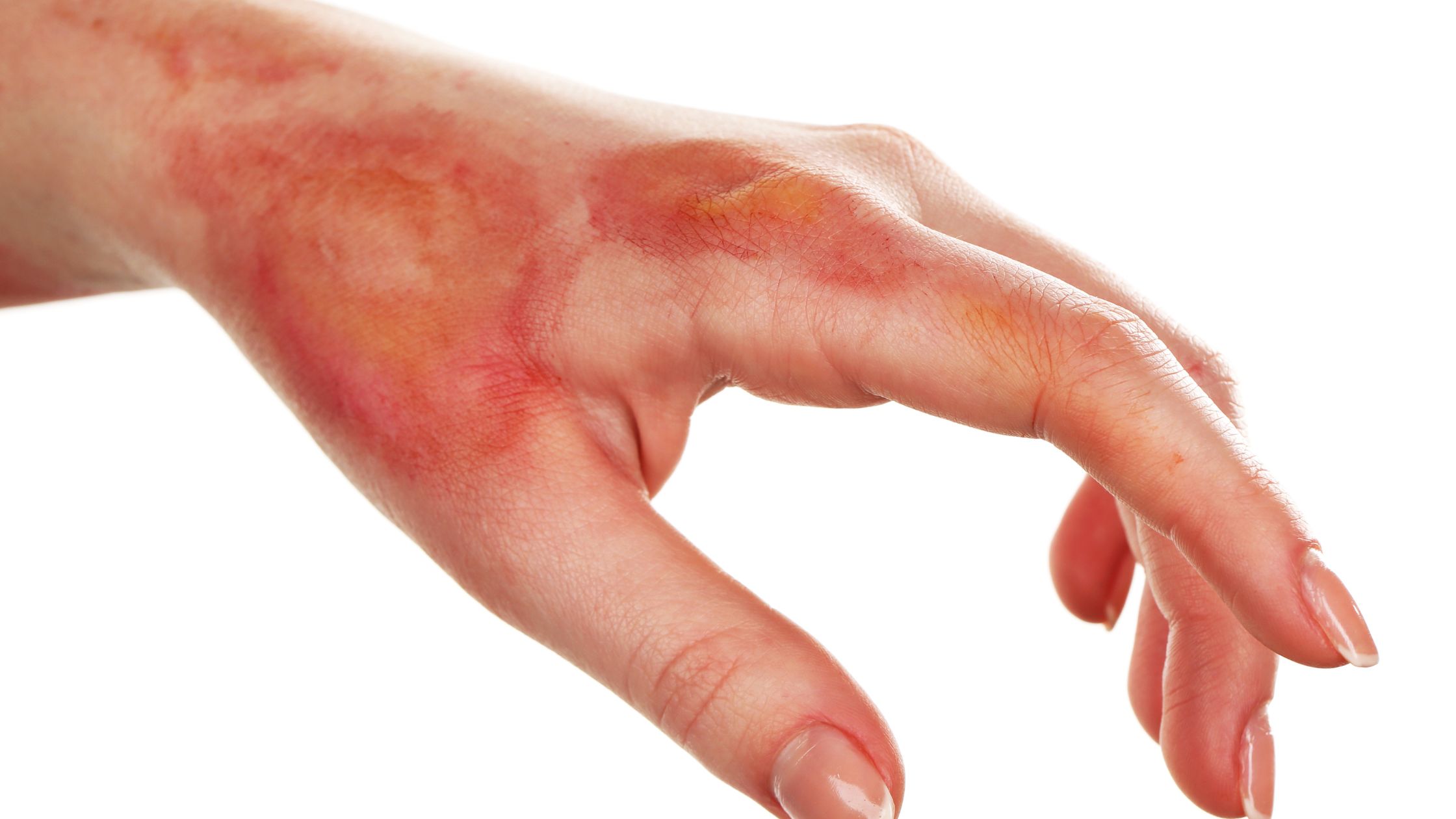Burns are a common household injury, ranging from minor to severe. Knowing when to seek medical attention is crucial for healing and preventing complications. This guide will help you understand the different types of burns, their severity, and when it’s essential to see a doctor.
Types of Burns
Burns are classified into three main types based on their severity:
- First-Degree Burns: These are the mildest forms of burns, affecting only the outer layer of the skin (epidermis). Symptoms include redness, minor swelling, and pain. Sunburns often fall into this category.
- Second-Degree Burns: These burns affect the outer layer and the underlying layer of skin (dermis). They are characterized by blistering, severe pain, and swelling. The skin may appear red, white, or splotchy.
- Third-Degree Burns: These are the most severe burns, extending through the dermis and affecting deeper tissues. The burn site may appear white, blackened, or charred. Surprisingly, third-degree burns may not be painful initially due to nerve damage. Call 911 to be taken to your nearest emergency room.
When to Seek Medical Attention
While minor burns can often be treated at home, certain situations require professional medical care. Here’s when you should see a doctor:
- Large Surface Area: If the burn covers a large area of your body (more than three inches in diameter), it’s essential to seek medical attention, even if it appears to be a first-degree burn. Burns on the face, hands, feet, groin, or significant joints also warrant a doctor’s visit due to their potential impact on function and appearance.
- Second-Degree Burns or Worse: If you suspect a second-degree burn or higher, it’s advisable to consult a healthcare professional. The risk of infection, scarring, and other complications increases with the severity of the burn.
- Signs of Infection: Watch for signs of infection, such as increased pain, redness, swelling, warmth around the burn, pus or other discharge, and fever. Infections can complicate healing and may require antibiotics.
- Third-Degree Burns: Any third-degree burn needs immediate medical attention. These burns can cause significant tissue damage and require specialized treatment, such as skin grafts.
- Chemical or Electrical Burns: Burns caused by chemicals or electricity can cause internal damage not immediately visible. It’s crucial to seek medical evaluation to assess and mitigate potential complications.
- Difficulty Breathing or Smoke Inhalation: If the burn is associated with smoke inhalation or causes difficulty breathing, seek emergency medical care immediately. Smoke inhalation can damage the lungs and airways, requiring prompt treatment.
- Persistent Pain or Other Symptoms: If pain persists or worsens despite home treatment or if you experience other concerning symptoms (such as dizziness or confusion), it’s best to get a professional assessment.
Home Care for Minor Burns
For minor burns, initial home care can promote healing and alleviate discomfort:
- Cool the Burn: Run cool (not cold) water over the burn for 10-15 minutes or apply a cool, wet compress. This helps reduce pain and swelling.
- Protect the Burn: Cover the burn with a sterile, non-adhesive bandage or clean cloth. Avoid using cotton balls or any material that might shed fibers.
- Pain Relief: Over-the-counter pain relievers like ibuprofen or acetaminophen can help manage pain and reduce inflammation.
- Moisturize: Once the burn has cooled, apply a moisturizing lotion or aloe vera gel to keep the area hydrated and support healing.
- Avoid Popping Blisters: Do not pop if blisters form. Blisters protect the underlying skin and help prevent infection.
Visit Central Illinois Urgent Care for Burn Treatment
Always seek emergency care for severe burns. At Central Illinois Urgent Care, our dedicated urgent care team is equipped to provide immediate attention to minor burns and will quickly get you back to feeling your best.
We believe health should be measured in terms of the whole person—body, mind, and spirit. Our walk-in clinics are open seven days a week, with evening hours, and are located in Effingham, Taylorville, Litchfield, Forsyth, and Lincoln, Illinois. Walk-ins are always welcome, and you can also make an online reservation.
Remember, your health and safety are paramount. Don’t hesitate to seek help when you need it.
